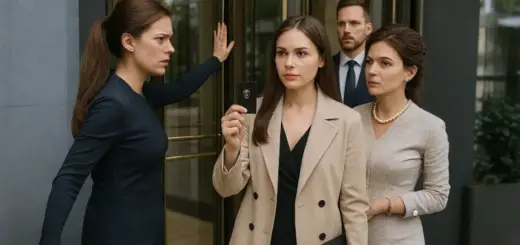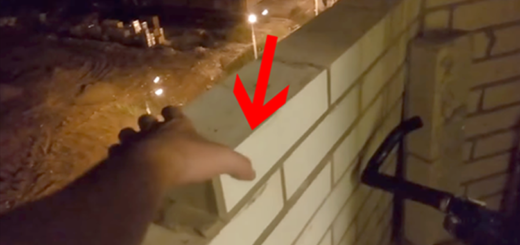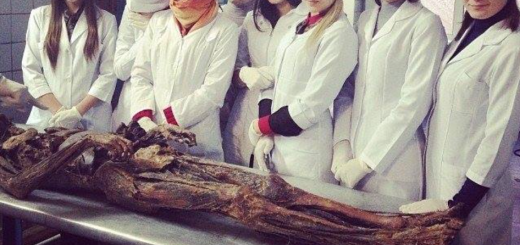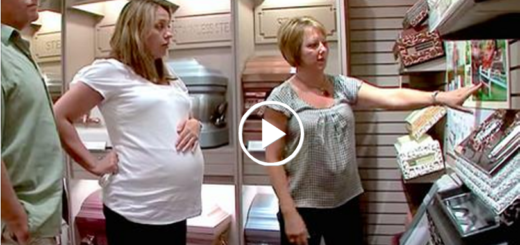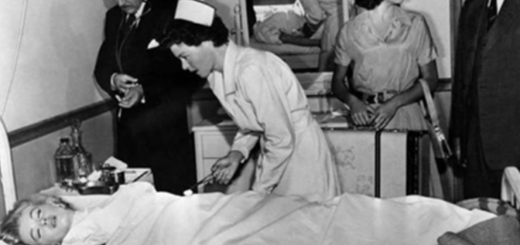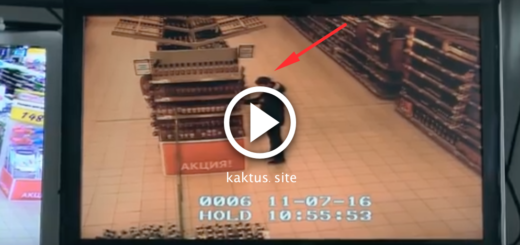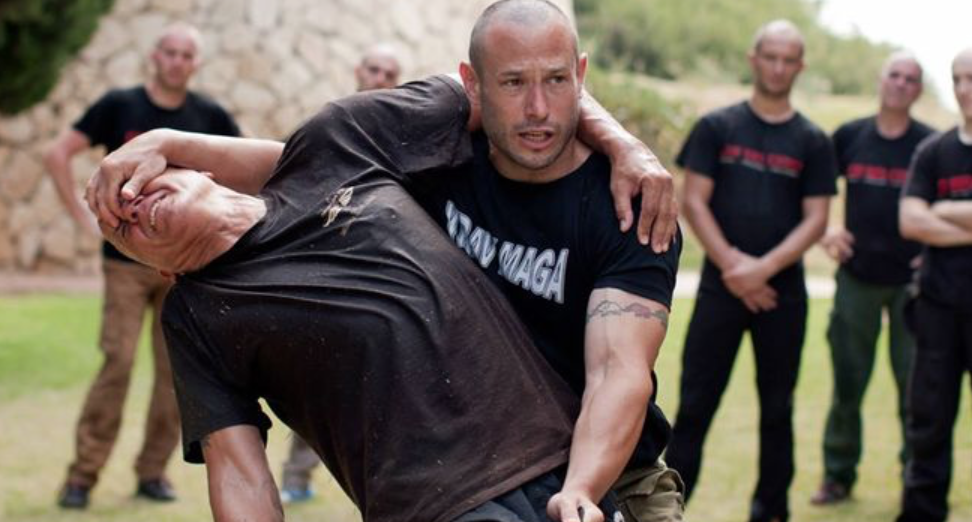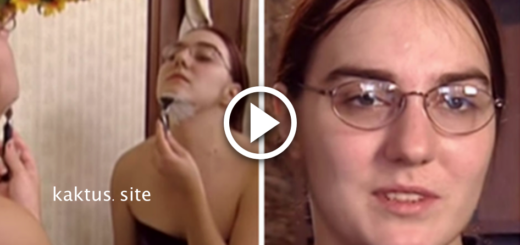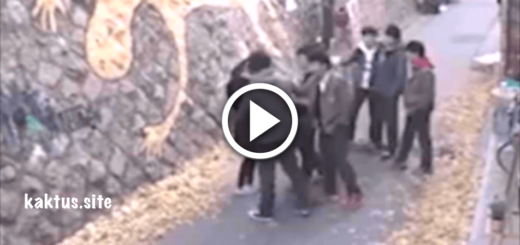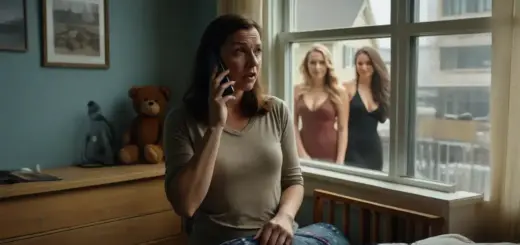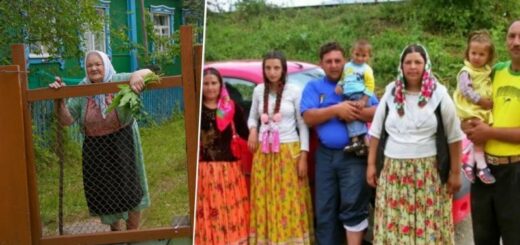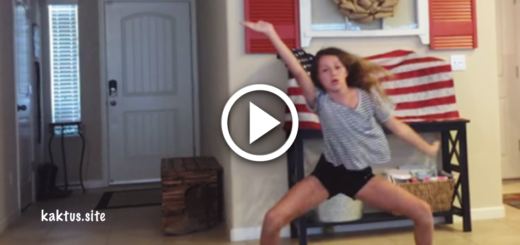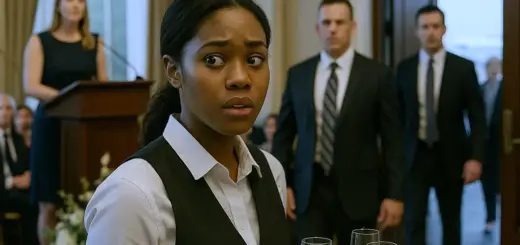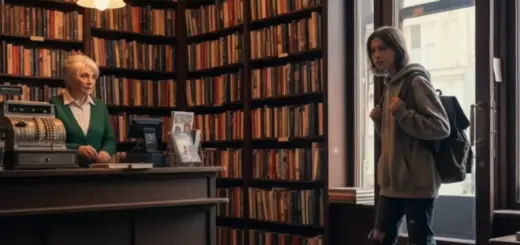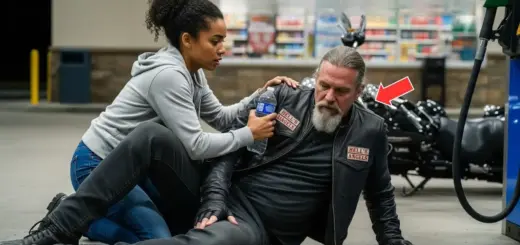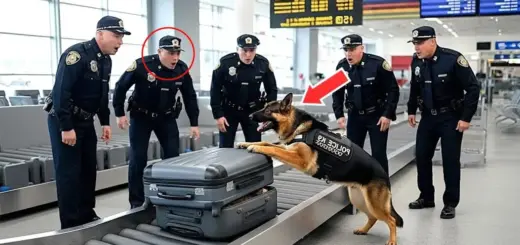«Honey, are you lost?» she asked, kneeling to my level. I shook my head automatically, trained to never admit trouble to strangers.
«Where are your parents?» she persisted gently.
«They… they went to move the car,» I lied, my voice cracking.
«When was that?» Janet asked, her expression growing concerned.
I couldn’t maintain the facade any longer. Three hours of abandonment, fear, and confusion came pouring out in a flood of tears. «They left me!» I sobbed. «They drove away and said to find my way home. But home is in Pennsylvania!»
Janet’s face shifted from concern to alarm. She led me to a quieter area near the station’s administrative offices, got me a bottle of water, and asked me to explain everything. Through hiccuping sobs, I told her about my parents, the A-minus, and watching them drive away laughing.
«What’s your name, sweetheart?» she asked.
«Jennifer Taylor,» I whispered.
«And how old are you, Jennifer?»
«Twelve.» Her face hardened momentarily before softening again. «I’m going to help you, Jennifer. What you’re describing is not okay. Not at all.»
Janet informed her supervisor, who called station security. A kind security officer named Marcus took over, asking me more questions about my parents, our address, and phone number. I could see the adults exchanging glances over my head, their expressions grim.
«We need to call the police,» Marcus finally said. «What your parents did is abandonment. It’s against the law.»
And that was how, at 4:45 p.m. on a Saturday afternoon, I found myself sitting in a small office at Union Station, watching Officer Teresa Ramirez file a report about my abandonment. My whole body felt numb. This couldn’t be real. Parents don’t just leave their children in strange cities. But mine had.
The fluorescent lights of the Chicago Police Department’s 1st District Station buzzed overhead as I sat wrapped in a borrowed blanket, though it wasn’t cold. Officer Ramirez had brought me here after taking my statement at Union Station. She’d been kind but professional, documenting everything with a seriousness that made the reality of my situation sink in deeper.
«We’ve tried calling your home number twice,» she informed me, setting down a cup of hot chocolate. «No answer yet.»
My stomach twisted. «Maybe they’re still driving back,» I suggested weakly. The drive to Ridgeview would take over three hours. A small, desperate part of me still hoped this was just an extreme lesson, that they’d turn around halfway home once they felt I’d been scared enough.
«Maybe,» Officer Ramirez replied. But her tone suggested she thought otherwise.
The police station was nothing like I’d imagined. There were no bars or cells visible from where I sat, just desks, computers, and phones. Still, the knowledge that I was in a police station because my own parents had abandoned me was overwhelming.
«Jennifer?» a new voice called. A woman in her 40s with curly brown hair approached, carrying a file folder. «I’m Laura Donovan from the Department of Children and Family Services. I’d like to talk with you for a bit, if that’s okay.»
The next hour passed in a blur of gentle questions. Had my parents done anything like this before? Yes, but never this extreme. Did they ever hit me? No, not physically. Did I feel safe at home? I hesitated too long before answering, which was answer enough.
«What’s gonna happen to me tonight?» I finally asked, my voice small.
Laura explained that since they couldn’t reach my parents, I would be placed in emergency foster care until the situation could be sorted out. The words «foster care» sent a chill through me. I’d heard stories about foster homes. None of them good.
«We have a wonderful emergency placement family,» Laura assured me, seeming to read my thoughts. «The Williams family has worked with us for years. They have a daughter about your age.»
By 9 p.img., I was sitting at the Williams’ dining table, picking at a plate of spaghetti I couldn’t eat. Diane and Robert Williams were trying their best to make me comfortable, but nothing felt real. Their daughter Alicia showed me to the guest room, awkwardly offering to lend me pajamas and a toothbrush.
«Your parents will probably come get you tomorrow,» she said, trying to be helpful. I nodded, not believing it.
I didn’t sleep that night. I lay awake staring at the unfamiliar ceiling, replaying the image of my parents driving away laughing. What kind of parents did that? What had I done to deserve it?
The next morning, after a breakfast I barely touched, Laura Donovan returned. Her expression told me everything I needed to know before she spoke.
«We reached your parents late last night,» she said carefully.
«Are they coming to get me?» I asked, already knowing the answer.
«Not yet,» Laura replied. «They… well, they said they were ‘teaching you a lesson’ about independence and problem-solving.»
Hot tears sprang to my eyes. «By leaving me in a different state?»
«They claimed they planned to call the station after a few hours to ‘check on you,’ but things escalated when authorities became involved.»
Translation: they hadn’t planned to call anyone. They’d expected me to panic, maybe cry, and then… what? Magically find my way home with no money, no phone, and no ID?
«Your brother Ethan confirmed you were expected home yesterday evening,» Laura continued. «He was surprised when his parents returned without you.» A fresh wave of betrayal washed over me. So Ethan hadn’t been in on it. Small comfort.
«What happens now?» I asked.
«We’ve arranged a meeting at our office tomorrow. Your parents will be there. A judge has been notified about the case, and there will be a hearing later this week to determine next steps.»
The next 36 hours passed in a strange limbo. The Williams family was kind, but I felt like a ghost moving through their home. Diane tried engaging me in conversation, Robert offered to play board games, and Alicia invited me to watch TV with her. I went through the motions, numb.
The meeting at the DCFS office was set for 2 p.m. Monday. I changed back into my original clothes, now wrinkled from being hastily washed and dried. Laura drove me to a government building downtown, explaining what would happen.
«You don’t have to speak to your parents if you don’t want to,» she assured me. «I’ll be with you the whole time.»
We entered a conference room with a long table. Already seated were two other adults Laura introduced as her supervisor and a family court liaison. Five minutes later, the door opened again.
My parents walked in, looking nothing like the confident, laughing people who had driven away from Union Station. Dad’s face was haggard, Mom’s eyes red-rimmed. Behind them came a man in a suit who introduced himself as their attorney.
«Jennifer,» Mom said, stepping toward me. I flinched back involuntarily.
«Please take your seats,» Laura’s supervisor instructed firmly.
What followed was the most surreal conversation of my young life. My parents, guided by their attorney, presented their version of events. They had been concerned about my «lack of self-reliance and problem-solving skills.» The train station «exercise» had been planned as a «controlled life lesson.»
They had «circled back» after 20 minutes to «check on me from a distance,» but couldn’t find me. They «assumed» I had figured out how to call home or get help, demonstrating exactly the resourcefulness they wanted to encourage. They had driven home «expecting» to find a message from me, perhaps from a police station or a helpful stranger’s phone, showing I had «risen to the challenge.»
«We were teaching her independence,» Dad insisted. «Kids today are too coddled.»
«By abandoning your 12-year-old daughter in a city three hours from home with no money, no phone, and no ID?» Laura’s supervisor asked incredulously.
«She’s exaggerating how little money she had,» Mom said dismissively. «And there are phones everywhere. She could have called collect.»



